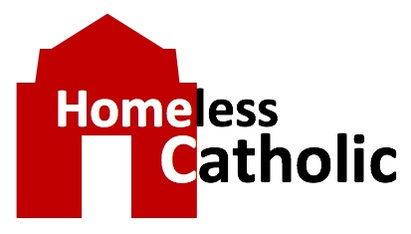Free to Worship
It may not be obvious, but our freedom comes with a caveat: We are free for the single purpose of worship. It is right and just that we should give thanks to the Lord, that we might serve him without fear, in holiness and righteousness before him all the days of our life. That is the way all things were meant to be.
Image by iphotoklick
We are free for the single purpose of worship
By Steve Hall
Saturday of the Thirty-second Week in Ordinary Time
Wisdom 18:14-16, 19:6-9
Luke 18:1-8
The opening Old Testament verse from today’s first reading has always been one of my favorites. When I initially came across this particular text more than fifty years ago, it was on a Christmas card, and the verse was abbreviated. I prefer the following translation because of its poetry and the Christmas image it suggests.
“For while gentle silence enveloped all things, and night in its swift course was now half gone, your all-powerful word leaped from heaven, from the royal throne, . . . . “ This was the Christmas card message.
That Christmas image, however, is negated by the words that follow, for that all-powerful Word leaped “ . . . into the midst of the land that was doomed, a stern warrior.” (Wisdom of Solomon 18:14-15) Whoa! The image changed with this abrupt shift. Moreover, the activity of this all-powerful Word continues: “ . . . bearing the sharp sword of your inexorable decree. And as he alighted, he filled every place with death.”
The text is not about Christmas at all. It’s about an event more than three thousand years ago when God saved his people from the slavery imposed on them by Egypt and it’s about the plagues inflicted that convinced Pharaoh to let the Israelites go. In this context, we remember the words of the Psalmist: “Out of my distress I called on the LORD; the LORD answered me and set me free.” (Psalms 118:5)
To be clear, however, it is essential to remember the nature of the freedom being sought. We find it in the words the Lord commanded Moses to say to Pharaoh: “You shall say to him, 'The LORD, the God of the Hebrews, sent me to you, saying, "Let my people go, that they may serve me in the wilderness . . . ."’ (Exodus 7:16) The people’s freedom was for the purpose of worship. We hear this purpose repeated by Zechariah, the father of John the Baptist, at the birth of his son:
"Blessed be the Lord God of Israel, for he has visited and redeemed his people, and has raised up a horn of salvation for us in the house of his servant David, to grant us that we, being delivered from the hand of our enemies, might serve him without fear, in holiness and righteousness before him all the days of our life.” (Luke 1:68-69, 74-75)
It may not be obvious, but our freedom comes with a caveat: We are free for the single purpose of worship. It is right and just that we should give thanks to the Lord, that we might serve him without fear, in holiness and righteousness before him all the days of our life. That is the way all things were meant to be. And so our freedom, properly received, gives us the opportunity to live lives of justice, and that is the prayer so often heard throughout the Old Testament. “Great is your mercy, O LORD; give me life according to your justice.“ (Psalms 119:156)
Again, we need clarity on a word so often used in the Scripture.
When we think of Justice, the image of a blindfolded matron with balance scales in hand regularly comes to mind. There is just such a statue in the entryway of the Kansas Supreme Court. But the justice of humanity is far more about providing a counter to wrong actions taken — that’s why the image of scales is such a dominant one in any image of justice. Except in rare cases, human justice systems cannot right what is wrong. We merely do what we can to balance out the wrong that was perpetrated. But the justice we practice is not the justice of God. The Justice of God is, in essence, a matter of making things right, not about punishing wrongs.
Here, it is useful to recall the words of the Psalm: “For as the heavens are high above the earth, so great is his mercy toward those who fear him; as far as the east is from the west, so far does he remove our transgressions from us.”(Psalms 103:11-12) Good and evil, holiness and sinfulness, are diametrically opposed. It makes sense, therefore, that God, who is intrinsically good and holy should separate us as far as possible from sin and evil. His justice is about making all things right — right in the sense that all things are authentically in accordance with the divine plan. In that right-ness truth, mercy, peace, and Justice reign; sin and evil have no place.
Thus we come to the gospel parable in which a widow seeks justice. Notice that she does not pursue a favorable decision. Neither does she seek punishment or retribution. Coming from the mouth of Jesus, who above all knows divine Justice, we must understand that she seeks to have the matter at hand set right, I.e., corrected so that it is in accord with divine Justice. It is with that understanding that we hear the commentary of Jesus: “Will not God then secure the rights of his chosen ones who call out to him day and night?” We know he is not talking about civil rights or Constitutional rights but about the ‘right,’ the ‘correct,’ the ‘perfect,’ which is in accordance with the very perfection of God.

